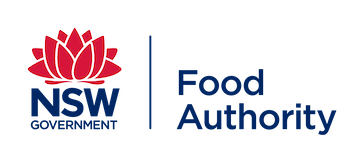Changes for school canteens
Food safety in school canteens is essential, particularly as children can be more vulnerable to foodborne illness.
School canteens are considered to be a retail food business as they sell food to the public and need to meet the following requirements.
New requirements from 8 December 2023
Recent changes to the Food Standards Code have introduced new food safety requirements for some school canteens.
From 8 December 2023, canteens that prepare unpackaged, potentially hazardous food, and serve it ready-to-eat, must:
- have a qualified onsite Food Safety Supervisor, who is reasonably available to supervise food handlers,
- ensure all food handlers are trained in food safety and hygiene, or can demonstrate adequate skills and knowledge, and
- be able to show their food is safe.
Canteens that only slice, weigh, repack, reheat or hot-hold potentially hazardous food they have not made themselves, for example slicing fruit or reheating meals provided by caterers, are required to:
- have a qualified onsite Food Safety Supervisor, who is reasonably available to supervise food handlers, and
- ensure all food handlers are trained in food safety and hygiene, or can demonstrate adequate skills and knowledge.
See Standard 3.2.2A - Frequently asked questions for more information.
Take our short quiz to find out which tools apply to your business.
School canteens, as a food business, will still need to notify their local council of their business and food activity details.
From 8 December, school canteens will be required to appoint a Food Safety Supervisor if, on an ongoing basis, the food they prepare is:
- served ready-to-eat
- potentially hazardous ie. needs temperature control, and
- NOT sold and served in the supplier's original package.
An FSS oversees day-to-day food handling operations, helps all food handlers to handle food safely and ensures food safety risks are managed.
They must be certified within the past 5 years and have skills and knowledge in food safety, especially around high-risk foods.
- See Food Safety Supervisors for more information.
From 8 December 2023, new food handler training requirements apply to some school canteens that serve unpackaged food. Those that process (prepare) unpackaged, potentially hazardous food and serve it ready-to-eat must ensure all food handlers are trained in food safety and hygiene or be able to demonstrate adequate skills and knowledge. This includes school canteen volunteers. The training must cover:
- safe handling of food
- understanding of food contamination
- cleaning and sanitising of food premises and equipment
- personal hygiene.
To satisfy the food standards, food handlers only need appropriate skills and knowledge for the tasks they perform.
See Food Handler Basics training for more information and to access the NSW Food Authority’s free training course.
From 8 December 2023, canteens that do more than just slice, weigh, repack, reheat or hot-hold potentially hazardous food, must also be able to demonstrate safe food practices.
Specific activities must be monitored and recorded, including:
- temperature control during food receipt
- storage
- display
- transport
- pathogen reduction during food processing
- minimising time during food processing
- cooling food
- reheating food
- cleaning and sanitising.
This requirement can be met by keeping records, and/or demonstrating safe food practices. This could include having a written instruction sheet or standard operating procedure, and/or being able to walk and talk an authorised officer through their food handling practices and processes.
For more information, including templates for recording keeping, see Showing food is safe.
Canteen managers will still need to ensure they and their staff:
- do not prepare food for others if you they are ill and remember to cover up wounds
- always wash hands thoroughly with warm soapy water and dry thoroughly with paper towel before and after touching food
- tie hair back, remove or cover jewellery and wear clean protective clothing
- keep raw meat in sealed containers at the bottom of the fridge so juices don't run onto other foods
- keep cold food cold, at 5°C or below, and hot food hot at 60°C or above
- store ready-to-eat foods above vegetables and meat in the fridge
- always sanitise or change chopping boards and utensils every time they are used for raw food
- keep the canteen free from vermin and animals by closing doors, using windows with screens, cleaning equipment and discarding of rubbish effectively.
Your local council will continue to inspect your school canteen to ensure it meets the food safety standards in the Food Standards Code.
For more information see inspections.
Operators of school canteens will still need to ensure:
- adequate hand washing facilities are available - check with local council on what is considered adequate
- food is kept protected from pests and vermin at all stages, including storage of ingredients
- premises are designed to exclude pests where practical
- adequate refrigeration capacity is essential - overloading domestic refrigerators and constantly opening the door means food takes longer to cool and harmful microorganisms have more chance to grow
- refrigerate foods in small portions to allow proper cooling
- refrigerated foods should be kept below 5°C.
School canteens will still need to practice safe food handling and preparation to meet the same food safety requirements as other retail food businesses.
This includes:
- notifying the local council of their business and food activity details
- meeting the requirements of the Food Standards Code
